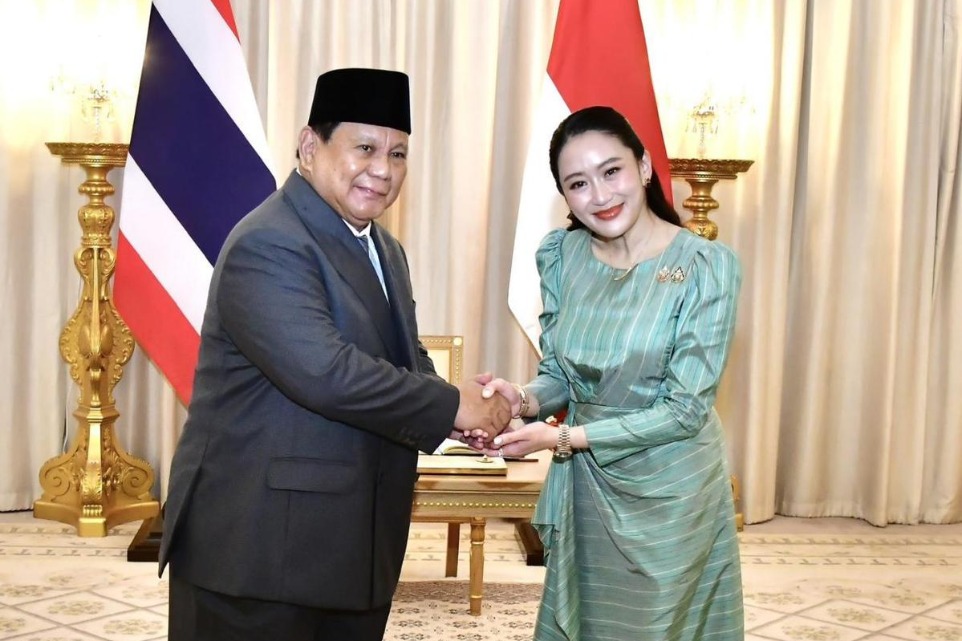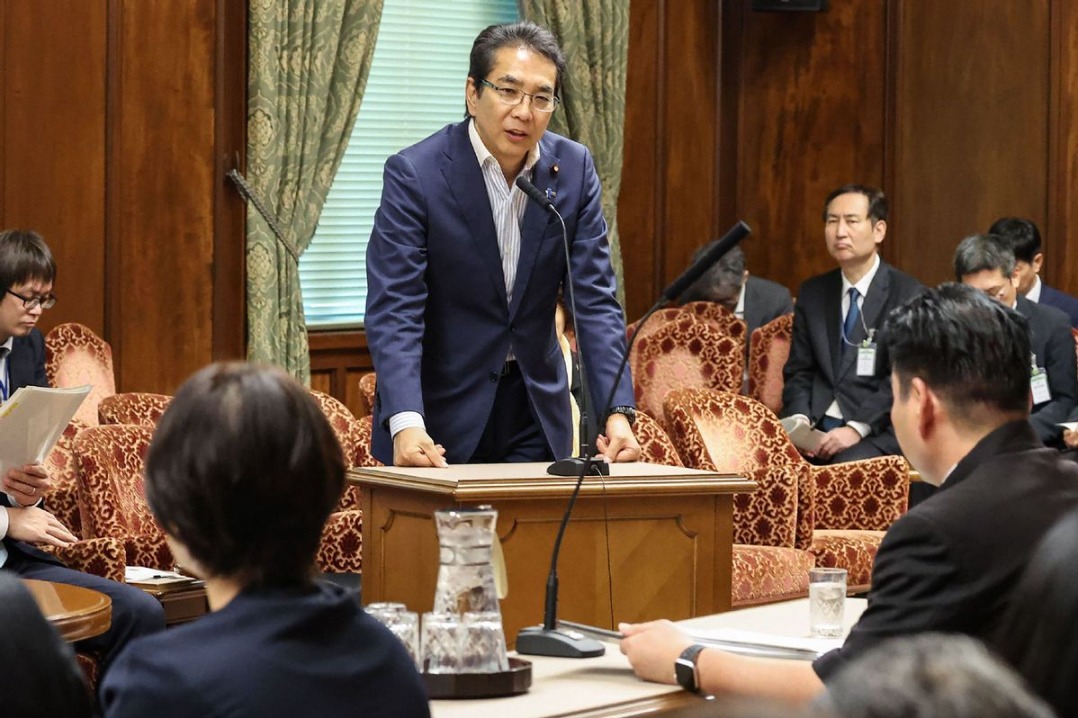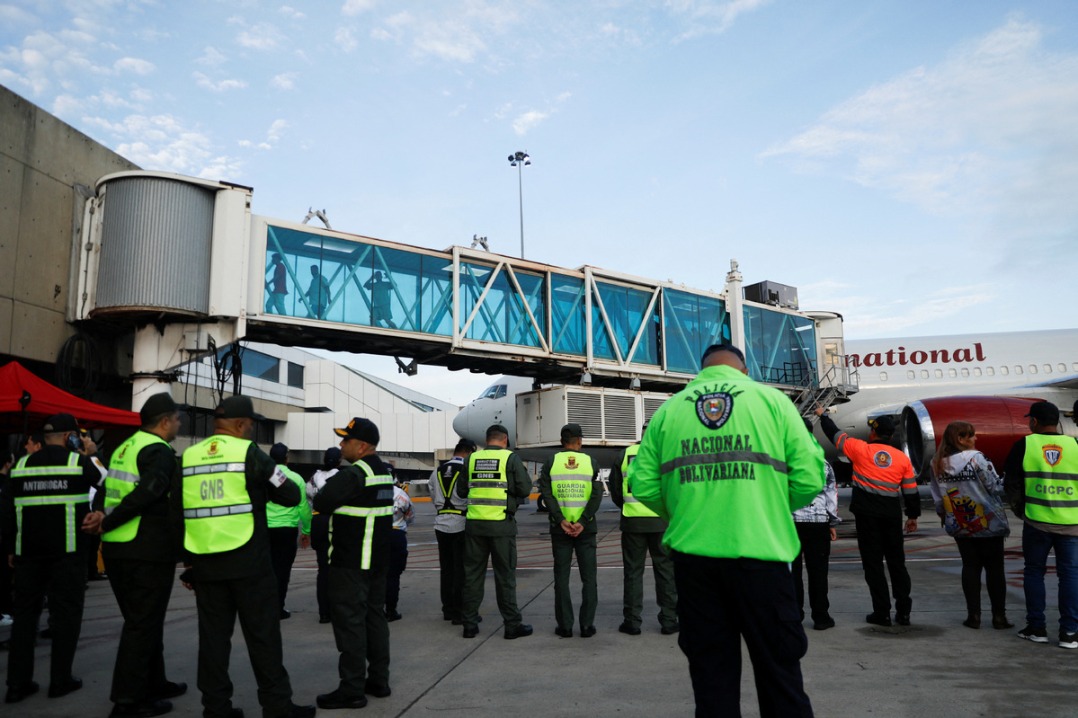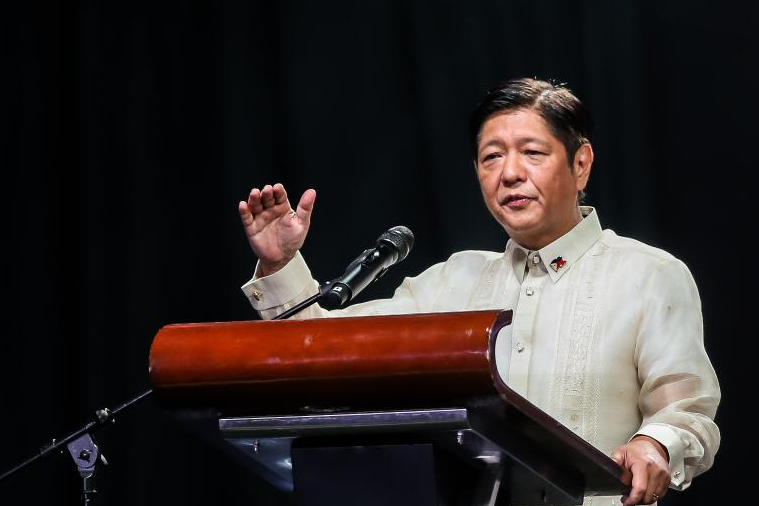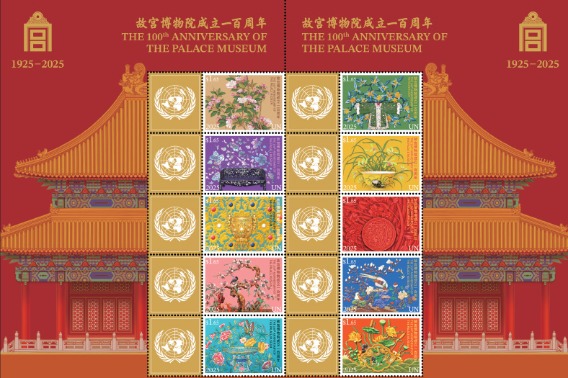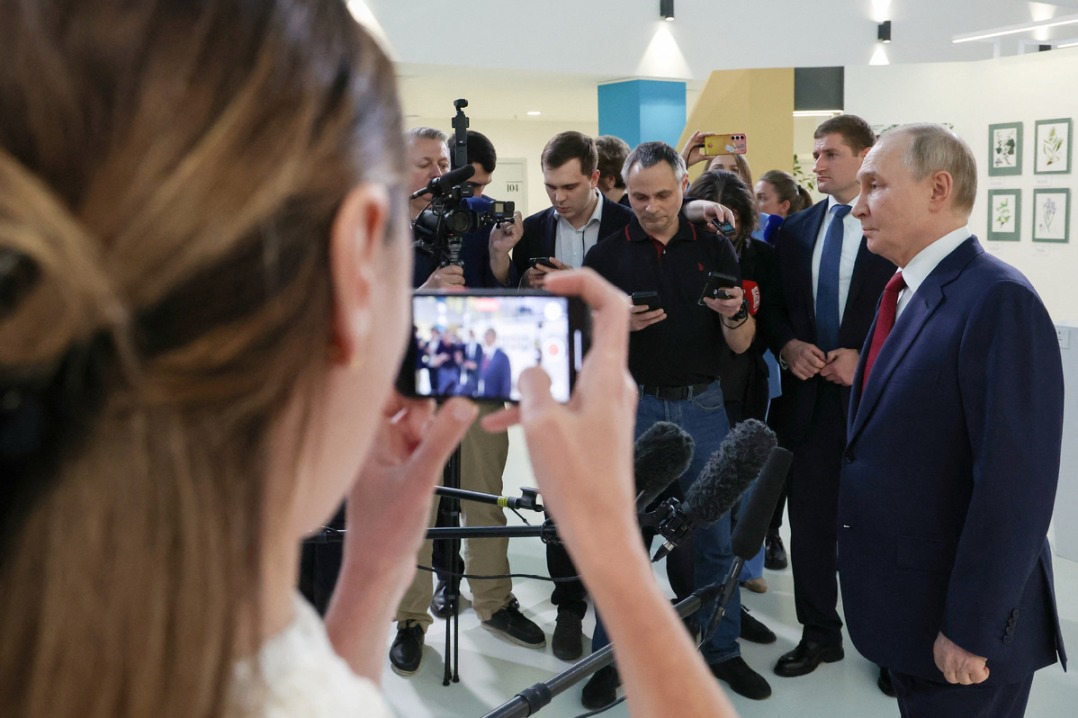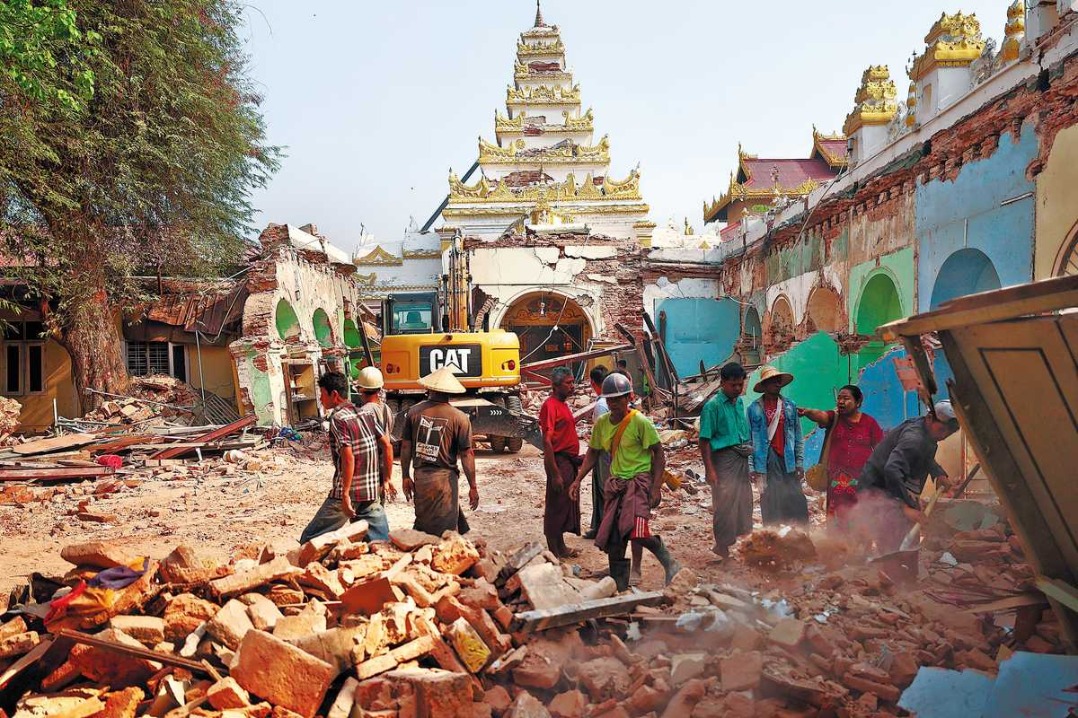Fallen WWII Chinese laborers honored in Japan

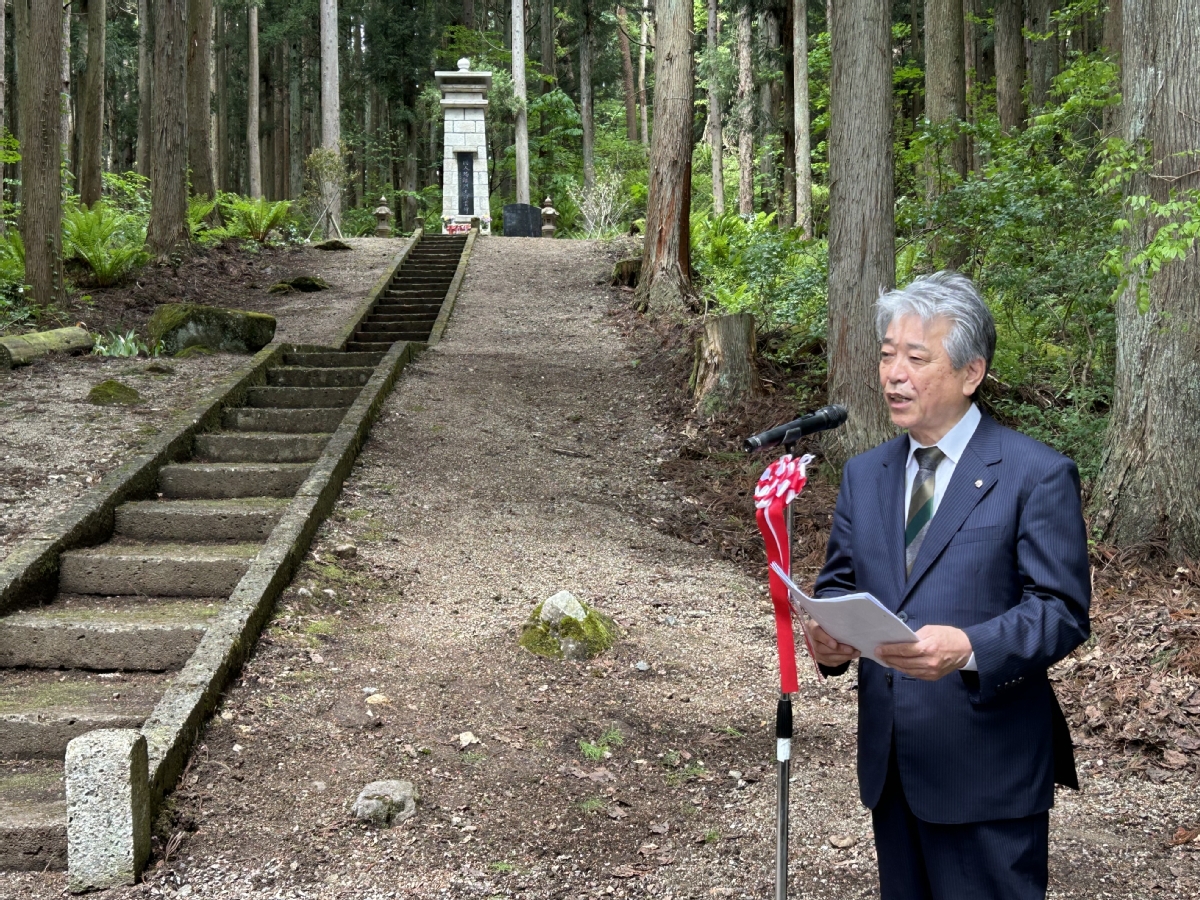
Diplomats and advocates for Japan-China friendship gathered in Inawashiro, Fukushima Prefecture, on Sunday to reflect on the past and renew their commitment to a peaceful future between the two countries.
A commemorative tree-planting ceremony marked completion of the renovation of a monument honoring fallen Chinese laborers.
Historical records show that near the end of World War II, about 40,000 Chinese people were forcibly brought to Japan and subjected to extremely harsh labor and inhumane treatment, resulting in the deaths of nearly 7,000 individuals.
About 1,000 were sent to Fukushima, where 25 died as a result of persecution.
To mourn the Chinese laborers and stand against militarism, a 5.2-meter-tall monument was unveiled in 1971. After being expanded in 1988, a second major renovation began in 2023, which was recently completed with the support of Japan-China friendship organizations.
"This year marks the 80th anniversary of the victory in the Chinese People's War of Resistance Against Japanese Aggression and the World Anti-Fascist War," said Cui Weilei, Chinese consul general in Niigata.
"At that time, Japanese militarism committed heinous crimes against the people of China and other Asian countries and also brought profound suffering to the Japanese people themselves."
Cui said a correct understanding and attitude toward the history of Japanese militarist aggression is an essential precondition for Japan's postwar reintegration into the international community and for earning the trust of its neighbors.
"China's emphasis on remembering history is not about perpetuating hatred, but about learning from the past, looking to the future, and jointly cherishing and safeguarding peace — so that the people of China and Japan can enjoy lasting friendship and peace for generations to come."
He called on Japan to deeply reflect on its historical responsibilities, reject the revival of militarism, and adhere to the spirit of its pacifist Constitution.
Itsuo Hashimoto, vice-president of the Japan-China Friendship Association, said China plays a vital role not only in its relationship with Japan, but also on the global stage.
"Japan and China must work not only for their own development, but for Asia, for the world, and ultimately for all humanity.
"From this perspective, we must learn from the histories of both countries — not simply to dwell on the past but to build a future that rises from it and moves forward," he said.
Hisashi Endou, president of the Fukushima Prefectural Japan-China Friendship Association, recalled that while Chinese prisoners of war were forced to work on a hydroelectric power plant in Fukushima and 25 died, China treated Japanese POWs and civilians with compassion and repatriated them after the war.
Spirit of gratitude
The monument honoring Chinese laborers was built with support from one such repatriated Japanese POW, reflecting a spirit of gratitude and reconciliation that continues to this day.
"We hope today's tree planting ceremony will further strengthen the bonds between our nations, and that the red plum trees will continue to bloom every year as a symbol of our shared desire for lasting friendship," Endou said.
Among the participants was Shinji Oguma, a member of Japan's House of Representatives, who joined fellow speakers in planting the plum trees.
He said plum blossoms symbolize perseverance, patience and truth.
"With a deep respect for historical truth, and through persistent, patient efforts, we must continue to deepen the friendship between Japan and China," he said, emphasizing that a strong Japan-China relationship is vital not only for regional stability but also for global peace.
Wang Jiangkun, an artificial intelligence technician and PhD graduate from the University of Aizu in Fukushima, expressed hope that younger generations will take on the responsibility of fostering understanding and cooperation between the two countries, and build a better future without war.
"The names on the monument remind us not only of lives lost, but also of the suffering of war and the preciousness of peace," he said. "Today's memorial and cleaning are not merely about wiping a stone; they are acts of healing the wounds of history and conveying our wishes for peace."
jiangxueqing@chinadaily.com.cn

















